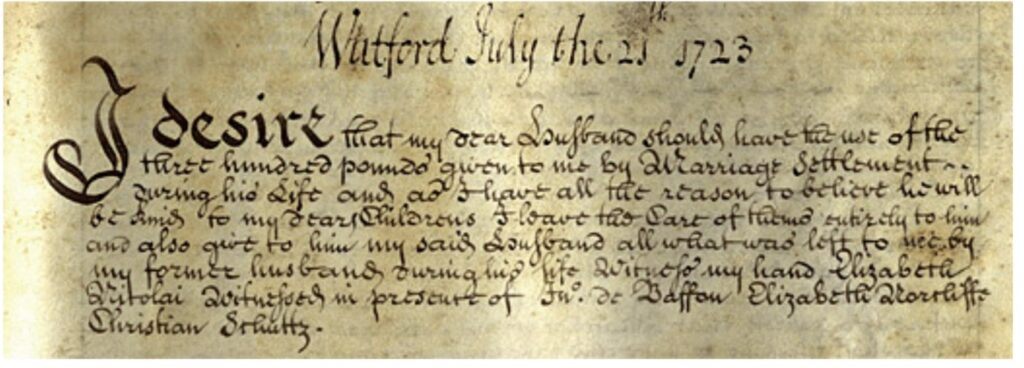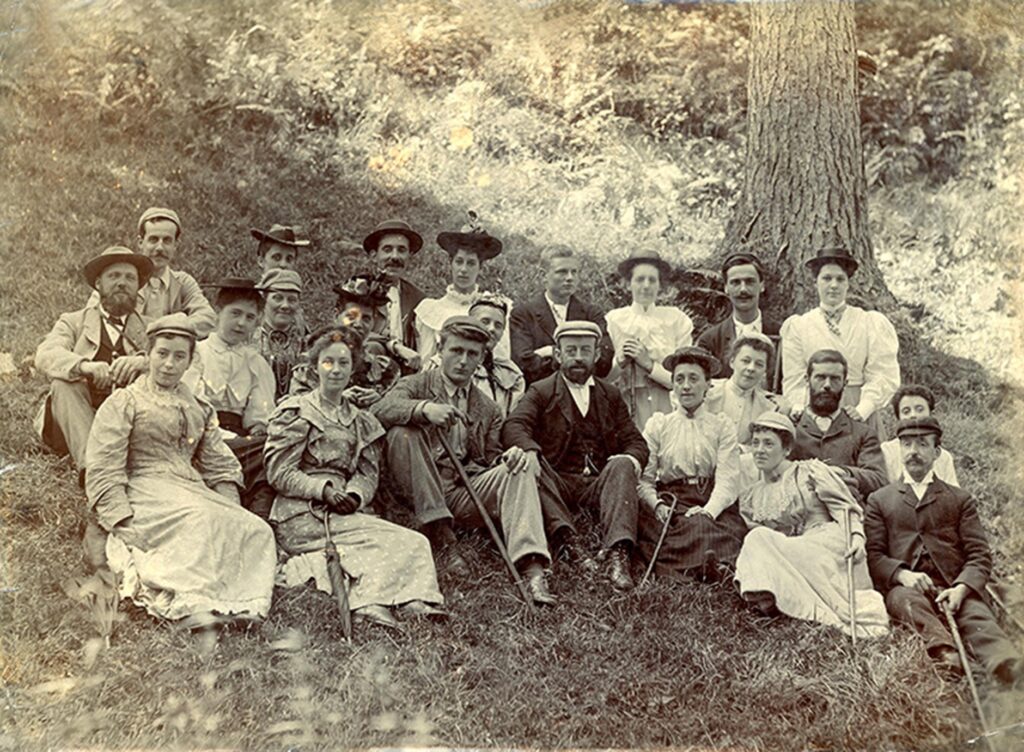Tracing one’s family history can be a rewarding and fulfilling journey, but it also comes with its fair share of challenges. Whether you’re just starting out or have been researching your genealogy for years, it’s common to encounter roadblocks and difficulties along the way. In this blog, we’ll be discussing some of the most common genealogy research and providing solutions to help you crack the code and continue building your family tree with confidence. So, let’s dive in and unravel the mysteries of genealogy research together!
Deciphering Old Handwriting and Unfamiliar Terms
Unravelling our ancestral ties often leads us to antique documents adorned with cryptic handwriting or terms that feel alien to our modern tongues. For instance, a term like feoffee in an ancestor’s will might be mystifying, but it simply means a trustee for a property.
The key to decoding these lies in acquainting ourselves with historic handwriting. Handwriting guides and internet resources devoted to vintage scripts can prove to be a treasure trove in your quest. When faced with obscure terms, don’t hesitate to reach for a glossary or seek wisdom from experts in the field. Understanding the exact connotations and context of these terms can shed new light on your lineage. From an obscure will to an old census record, once intimidating documents can unfold fascinating stories about your ancestors, providing you with invaluable links to the past.

Unearthing the Elusive Ancestors
Locating information about certain ancestors can sometimes be similar to finding a needle in a haystack, especially when they date back centuries or originate from foreign lands. In such cases, broadening the scope of your research resources can provide the much-needed breakthrough.
Utilising various genealogy websites and employing the use of DNA tests can prove immensely fruitful. These resources provide clues about geographic origins, ancestral connections and at times, the potential to connect with distant relatives. Don’t limit yourself to digital repositories; there is a world of information waiting to be discovered in the physical archives, public libraries, and even in the stories shared on social media groups dedicated to genealogy.
Furthermore, engaging in conversations with older family members can lead to the unearthing of oral histories, offering priceless snippets of information that no records could capture. The key is to remain persistent and keep exploring diverse avenues, for the elusive ancestors are often found in the most unexpected corners.
Dealing With Common Surnames
Coming across a common surname in your family tree can prove to be a tricky hurdle. It’s like trying to find one particular Smith or Johnson in a bustling city. But don’t worry, there are ways to tackle this problem. Instead of focusing solely on the surname, bring into play more detailed data such as birth or death dates, places of residence, occupations, and the names of other family members. This added information can serve as unique identifiers, significantly whittling down your search. For instance, if you’re looking for a John Smith, try narrowing it down to a John Smith, born in 1850, residing in Sussex, who worked as a blacksmith. Incorporating these additional details will help you differentiate your ancestor from the multitude of common surnames, making your genealogical journey smoother. Remember, every bit of information can be a vital clue in this detective game of tracing your ancestry.

Overcoming The Lack of Genealogy Records
There may be instances where crucial family records have vanished into the midst of time due to unfortunate events such as fires, conflicts, or calamities. This is not the time to throw in the towel but to shift your focus to unconventional resources. Delve into local newspapers, education records, church registers, or property deeds that may harbour indirect evidence about your ancestors. The local historian or the oldest resident could offer fascinating tales and traditions, providing valuable leads. War diaries, postcards, and even old recipes can give unexpected insights into your family’s past.
For instance, a Second World War soldier’s diary could reveal familial ties based on places visited and people encountered. Similarly, a parish register from the 1800s might reference your ancestors, indirectly tying them to particular locale or profession. So, when traditional records let you down, remember, every bit of the past leaves its trace somewhere.
Hitting a Dead End
It’s not uncommon to hit a wall in your genealogical pursuit, finding yourself trapped in a dead end with no leads. Don’t fret, there are paths you can take! Consider revisiting your initial enquires. It could be possible that your initial enquiries require some refinement or a change in terminology. Alternatively, it might be worthwhile expanding the scope of your research, including more expansive variables in your search.
Joining forces with others who share your passion can also be highly beneficial. Engaging with other genealogy enthusiasts, partaking in relevant discussions on online platforms, or even sharing resources and insights with like-minded researchers can enhance your understanding. If you are continuing to struggle, hiring the services of a professional genealogist could be a suitable course of action. Their seasoned expertise and specialised skills could serve as a crucial breakthrough in your quest. So, should you ever encounter what seems to be a total standstill, don’t lose heart!
Did you know we have a family history service? We can help you scale your highest brick wall!

Understanding Name Variations
Variations in names can often become a stumbling block in genealogy research. Imagine tracing an ancestor, only to find their name differs in spelling across various documents, or they’re commonly referred to by a nickname. Even changes in language over the decades can contribute to this confusion. But worry not, there are ways to steer around these hurdles. One effective method is utilising wildcard searches, which allows you to include unknown letters or variations in your search. Alternatively, try phonetic searches, which focus on how a name sounds rather than its precise spelling.
Digging into the local naming customs and patterns could also give you a fresh perspective and valuable insights. For example, understanding that Maggie could be a shortened version of Margaret, or that surnames can change with each generation in some cultures, can significantly widen your research net. Name variations are an intriguing part of your genealogy puzzle, waiting to be solved!
What Are Your Genealogy Research Problems?
Genealogy research can be challenging, but every obstacle is an opportunity to delve deeper into your family history. With the right tactics and a well-organised approach, you’ll successfully manoeuvre through the labyrinth on your lineage. Each puzzle piece you discover is a precious link to your roots, helping you understand your place in the grand narrative of your ancestry. So, gear up, embrace the challenges, and get ready to uncover the mysteries of your past.
What are your biggest research problems? Have you hit a brick wall? Share them on our social media and see who can help!


